Banned in the USA: Part 2
Photo by Josh Woodward/Coffee House Media
Jim Hasenauer is more than a little familiar with the International Mountain Bicycling Association's policy on mountain biking in Wilderness areas. As a co-founder of IMBA, he helped shape IMBA's strategy of working around the Wilderness Act's ban on bikes, rather than outright challenging it. Today, however, Hasenauer is breaking publicly with the past: He’s still a supporter of IMBA, but Hasenauer now also supports the Sustainable Trails Coalition, which unlike IMBA, is pushing hard to directly contest the ban on bikes.
You can scroll down and check out Hasenauer’s letter to the world. It’s a good read. Still, I wanted to know more: Why, after nearly 30 years, has Hasenauer had a change of heart? Here’s his answer.
Oh, and if you’re wondering what this whole ban on bikes in Wilderness is all about, this story will bring you up to speed.
Photo by by Adrian Marcoux
THE STORY BEGINS WITH A ROAD TRIP
It’s 1985 and Jim Hasenauer is road tripping with some friends. There are bikes in the back of the car, a tent, some sleeping bags and a dog-eared copy of The Fat Tire Flyer—the first magazine dedicated to mountain biking. At this point in the game, if you are even riding a mountain bike, you are sort of surfing a whole lot of “firsts”. The first mass-produced, knobby-tired machines are just now hitting bike shops in force. Mainstream America is just now waking up to this mountain biking thing and if you actually own one, it’s like you know the secret handshake to a club that most people have only heard about.
Hasenauer, for his part, has heard a lot about Point Reyes, “There were stories about it in Fat Tire Flyer. It was supposed to be this amazing place to ride. Besides,” recalls Hasenauer, “it was in Marin. We had to go.”
So there’s Hasenauer and a few buddies, heading for the holy land—Northern California. “We spent the night in Muir Woods, got up in the morning and drove over to Point Reyes,” here Hasenauer drifts off for a moment. “One of the first things we see is this sign reading 'No Bikes'. We were in a Wilderness area.”
Photo by Dave Trumpore
Less than a year before Hasenauer’s road trip, the Forest Service—under pressure from groups such as the Sierra Club and the Wilderness Society—changed their own Wilderness regulations, effectively outlawing mountain biking in Wilderness areas. The boom had come down and caught early mountain bikers entirely unaware.
“There were essentially no more mountain bike legal trails around there. And it really pissed me off,” says Hasenauer. “That was my first real awareness of the personal impact of the Wilderness ban. Right from the start, I ran up against the ban on bikes and, in a way, it feels like I’ve been running up against it ever since.”
That day in Point Reyes and the subsequent closure of some of Hasenauer’s favorite Southern California trails profoundly impacted Jim Hasenauer. He became an advocate—co-founding IMBA and helping lead the advocacy group in its early years; that’s one reason you’ll find his name on the lists of inductees to the Mountain Bike Hall of Fame.
Which makes today’s announcement all the more interesting.
 | I have pushed IMBA to take up the fight against the Wilderness ban on bikes in a more direct and systematic way. But IMBA continues to choose a different path and I have grown more frustrated. I think it is time for us to do something here. There is enough national attention to make a change. The time is right for staking out a new campaign and trying a new approach. |
Vernon Felton So why did you write this open letter to the mountain bike community?
Jim Hasenauer The ban on bikes in Wilderness areas is something I’ve been working on since I started riding. I’ve seen so many trails that I either rode on a frequent basis, or had the dream of one day riding, just be taken away from all of us mountain bikers. We were screwed back in 1984 and we’re still being screwed today. Bikes should be able to ride on some trails in some Wilderness areas.
Vernon Felton Okay, let’s play devil’s advocate here. You feel the ban is wrong, but you’re a mountain biker. You want to selfishly ride your bike wherever you want to ride it. Maybe you’re not supposed to be able to ride there in the first place because you’re devastating to the environment. What do you have to say that argument?
Jim Hasenauer People who oppose mountain bikes in Wilderness areas publicly hang their hat on one sentence in the Wilderness Act that says “In the Wilderness there shall be no mechanical transport.” Their argument is that bikes are machines and since there is not supposed to be any mechanical transport, bikes should clearly not be allowed in Wilderness.
But to really understand what Congress meant by “mechanical transport” you have to go back in the legislative history and see how that term was being used at the time. What they meant by mechanized transport was actually motorized transport. The legislative record is full of congressmen talking about their concern about the development of roads and roadside attractions like gas stations and motels...big infrastructure things that put a permanent, ugly stamp on the outdoors. That was the issue.
Congress was not concerned in the least about something like a bicycle. That’s why the Forest Sevice’s initial regulations explicitly defined mechanical transport as any conveyance propelled by a non-living power source. Once again, they were taking about motors here.
The ban on mechanical transport never had anything to do with bikes.
Photo by Sven Martin
Vernon Felton If Congress never intended to ban bikes in Wilderness areas, why did bikes get the boot in the first place?
Jim Hasenauer Look, there were legitimate concerns when mountain bikes first came on the scene. Nobody knew what our environmental or social impacts were going to be. I can understand people and policy makers exercising the cautious option back then. But now? Here we are 30 to 40 years later and there is tons of research showing that bike impacts are not significantly different than hiker impacts.
And we’ve proven ourselves. We've shown—whenever we’ve been given the chance—that bikers and hikers can co-exist on trails without conflict. And that’s why, to a large degree, the tides have changed on trail access in so many non-Wilderness areas. IMBA has been absolutely instrumental in making that happen and they deserve a lot of credit here. Trails have re-opened to us and land managers have realized those early bans weren’t actually good public policy. The stance on bikes in Wilderness areas, on the other hand, has just stayed frozen in time. It wasn’t right then and it certainly isn’t right now.
Photo by Tim Zimmerman
Vernon Felton So, what's your position now?
Jim Hasenauer What the Sustainable Trails Coalition is trying to do, and what I wish IMBA was trying to do, is go after that definition and bring it back to its original meaning—that “mechanical transport” in the Wilderness Act means things powered by a non-living source. A motor.
Vernon Felton The problem seems so cut and dry. So simple. Just change the wording of the regulations back to how they read before 1984. But if it’s so simple, why has it proved so impossible to make that happen?
Jim Hasenauer There are definitely a lot of mountain bikers in America now, but there are a lot more people loosely associated with this Wilderness Society and Sierra Club. Those are both gigantic organizations and when they ask their members to write letters or go to a meeting, they turn out in force. There are at least another eight big, traditional environmental organizations that work together and lobby in Washington DC, and have a strong influence on Forest Service planning. They are politically powerful. The mountain bike community has made great strides in advocacy and extending our influence, but in any kind of a head-to-head confrontation with large environmental groups, the history is that we get creamed.
Vernon Felton Wait, are you saying that we are getting beat up because we just can’t match their numbers or are we getting beat because we mountain bikers don’t band together and make better use of the numbers we actually have?
Jim Hasenauer Both. We are outnumbered, but more importantly, we aren’t politically active enough. People just want to go for a ride. I totally understand that. We ride to escape things like politics. And as long as people’s own trails aren’t threatened, people just kind of shrug their shoulders and move on with their lives. But if we aren’t being active on big-picture issues like Wilderness, those trail closures will come your way. Count on it.
Photo by Harookz
Vernon Felton Part of being outnumbered, it seems to me, is that we have traditionally relied on one organization—IMBA—to do everything for us. IMBA is somehow supposed to fight every fight for us, yet it has to prevail against dozens of groups that philosophically oppose mountain bikes. Isn’t that, fundamentally, too much to expect of IMBA or any single organization?
Jim Hasenauer IMBA has done a great job of sticking to its mission of creating and enhancing trail opportunities for riders. But IMBA has been neglecting this issue and I know we have because I was on the IMBA board for 16 years and we were always afraid of taking on the environmental organizations head on in any kind of a political fight. For starters, we were environmentalists ourselves. We wanted to protect and preserve these places too; we didn’t want to fight with people that we generally agreed with. Second, we just didn’t want to get creamed. So we were very, very cautious.
We took a different approach, by working with these same organizations. We wanted to be valuable to them as they pushed for environmental protections and if we could come to agreements with them—agree to change a Wilderness boundary and preserve access to a trail that was important to riders, then that was a victory for everyone.
We came up with lots of creative solutions to the Wilderness ban, but we came up with them all because we were fundamentally afraid to say, Hey, we’re bicyclists. We are low impact and we should be able to ride in the Wilderness.
We were afraid to lose that bigger fight.
Photo by Paris Gore
Vernon Felton It seems to me that we’re still afraid of losing that fight. IMBA has made several statements reaffirming their commitment to that approach. So why have you changed your mind about that strategy now?
Jim Hasenauer I have pushed IMBA to take up the fight against the Wilderness ban on bikes in a more direct and systematic way. But IMBA continues to choose a different path and I have grown more frustrated. I think it is time for us to do something here. There is enough national attention to make a change.
Vernon Felton But what about losing? That’s still a very big risk.
Jim Hasenauer Look, we’ll never win if we never try. It’s time to try. Could we lose? Sure. And if we lose, then we need to re-organize, improve our approach and try again. That’s what mainstream environmental groups always do. They keep trying. That’s why they’ve made progress. We have to do the same.
Photo by Mark Skovorodko
Vernon Felton So what do you want people to do after they read your letter?
Jim Hasenauer There are two things that I’m hoping for. Right now there are a lot of people siding with either STC or IMBA, but not both. They are casting one group as right and the other group as wrong. That’s a mistake.
I want people to support both organizations. We are all in this together. These internal fights—whether it’s roadies versus mountain bikers, downhillers versus cross-country racers or IMBA versus the STC—all we’re doing is wasting our energy by dividing ourselves.
I want to see us work together and move together towards the same goal. That’s why I wrote the letter. I also want people who might not have been paying attention to any of this, to get involved. Make a difference wherever you live.
AN OPEN LETTER TO ALL RIDERS
Dear Mountain Bikers,
The new Idaho Wilderness designation with its devastating loss of mountain bike trails; the emergence of the Sustainable Trails Coalition attempting to secure congressional legislation opening up access to some trails in some Wilderness; the increased activity from pro Wilderness groups around the country and IMBA's release of its 2016 Advocacy Position have generated a long overdue conversation about bicycles in Wilderness. Several people have asked me for my position.
I believe that mountain biking is compatible with the history and philosophy of Wilderness designation. We should be allowed on some trails in some Wilderness areas. We should certainly be allowed on trails we rode before they were designated Wilderness. We've lost far too many.
In the United States, designated Wilderness is the label we apply to the wildest, most natural, most undeveloped places and until 1984, early mountain bikers rode in the Wilderness. The very essence of mountain biking is to ride through places like this; to experience the sights, sounds, and smells; to feel the bike as it moves along the trail, to taste the air, the sweat and the dirt. The idea that mountain biking is or is not compatible with the wildest places spills over into all other access arguments. The facts are with us on this one and it's a battle we must win.
The Wilderness ban is bad public policy and it's clearly not what the authors of the iconic 1964 Wilderness Act intended.
When bikes were banned, 20 years later in 1984, anti-bike environmentalists and other trail users were applying pressures to land managers to ban us everywhere. NORBA, only one year old, was fighting the good fight for land access, but was not prepared for the pressure that the Sierra Club and the Wilderness Society put on the Forest Service. The Sustainable Trail Coalition has well documented the policy history. Anyone who studies it will understand that the Wilderness bicycle ban was not rooted in the philosophy nor legislative history of Wilderness. It was an expression of early user conflict, at best an implementation of the cautionary principle and at worst of human selfishness, territoriality and bias. In the ensuing years, thanks to IMBA and local organizations, most land mangers have opened their trails to mountain biking, and welcomed the energy, sweat equity and support the mountain bike community brings. The Wilderness ban is a vestige of early fears and misunderstandings of what mountain biking is about.
Photo by Andrew Meehan
I support the Sustainable Trails Coalition. They've taken on the difficult but focused task of making a law that ensures mountain bike use will be considered on Wilderness trails. That's an elegant solution to the Sisyphus like task of fighting dozens of individual battles over proposed Wilderness. I also support IMBA. Twenty eight years of advocacy have helped mountain bicyclists create an organization that has legitimacy, credibility and a proven record of creating and enhancing riding opportunities.
It's not unexpected that inside any movement advocates will argue about strategies and tactics. That's healthy. What's unhealthy is when these disagreements undermine each other's good works and the momentum of our movement. While I'm tremendously disappointed by IMBA's lack of support for the STC, I'm also troubled by the idea that riders would drop their support of IMBA. To gain and maintain access to riding in wild places, our community must pursue all approaches to secure access for bikes. We must support each other's efforts.
The STC has a single focus and is proposing a top down approach creating legislation that will eliminate the ban on bicycles and leave the decision to local Wilderness land mangers. Historically, IMBA's got a much broader focus, and takes a bottom up approach. It will not try to change the Wilderness ban directly. Instead it emphasizes being at the table when new Wilderness is proposed and negotiating to protect mountain bike trails by carefully drawing boundaries or finding other land protection designations that will still allow bikes. The goal is to provide the greatest amount of protected land while trying to ensure bike access to existing trails. IMBA's new 2016 advocacy plan promises to be more aggressive, to work to redraw some boundaries in existing Wilderness and to use the courts to challenge unjustified bike bans. Traditional environmental groups are going to oppose both the STC and IMBA. The agencies will resist change.
Our community needs both the STC and IMBA. As importantly, perhaps more importantly, it needs grassroots organizing and the ability to generate letters to decision makers and bodies at meetings. Our greatest vulnerability is our comparative weakness compared to the well honed mobilization abilities of the traditional environmental community. They bowl us over because they can. Both the STC and IMBA need to cultivate and share the phone trees, email lists and club networks that can quickly generate political pressure. We need to create a powerful political constituency that is pro-mountain bike.
The STC is initiating a political campaign that will likely take years to come to fruition, but if successful it will completely change the dialogue about Wilderness designation. I encourage all mountain bicyclists to dig deep, give what you can to the STC and be prepared for the grassroots political action that will become necessary when the bill is introduced. At the same time, renew your IMBA membership, monitor new Wilderness proposals and be at the table when they're being finalized. There' so much to do and we're all in this together.
--Jim Hasenauer
Hasenauer was a co-founder of IMBA, its early spokesman, on the Board from 1988-2004, and its president from 1991-1996. In 1998, he was inducted into the Mountain Bike Hall of Fame.
Author Info:
Must Read This Week
[UPDATED] Final Elite XC Results & Overall Standings from the Mairiporã XC World Cup 2024
42250 views
42250 views
Sign Up for the Pinkbike Newsletter - All the Biggest, Most Interesting Stories in your Inbox
PB Newsletter Signup
-
About Us
Contacts FAQ Terms of Use Privacy Policy Sign Up! Sitemap -
Advertise
Advertising -
Cool Features
Submit a Story Product Photos Videos Privacy Request -
RSS
Pinkbike RSS Pinkbike Twitter Pinkbike Facebook Pinkbike Youtube Pinkbike Instagram
Newsletter Signup
Copyright © 2000 - 2024. Pinkbike.com. All rights reserved.
dv56 0.059442
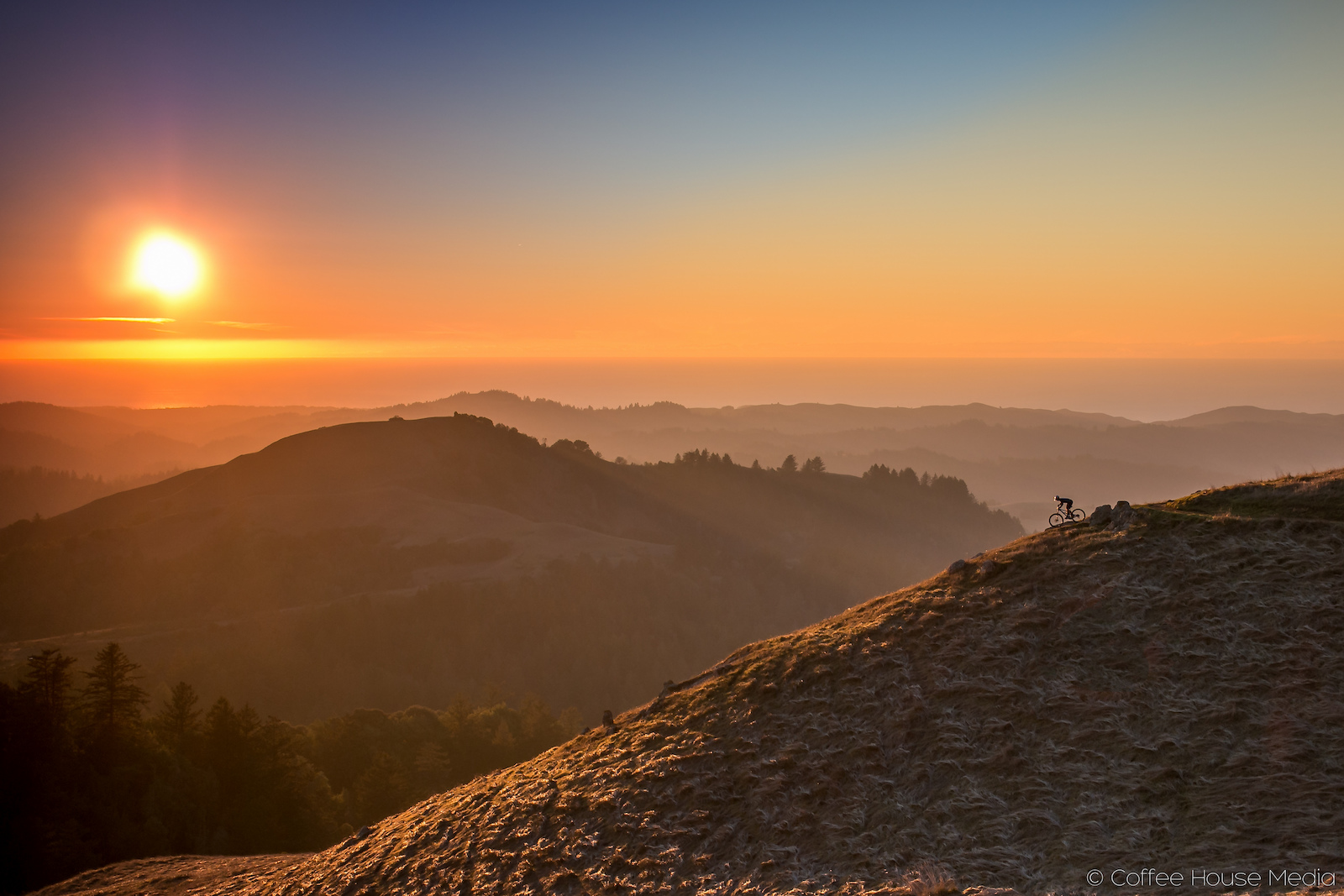
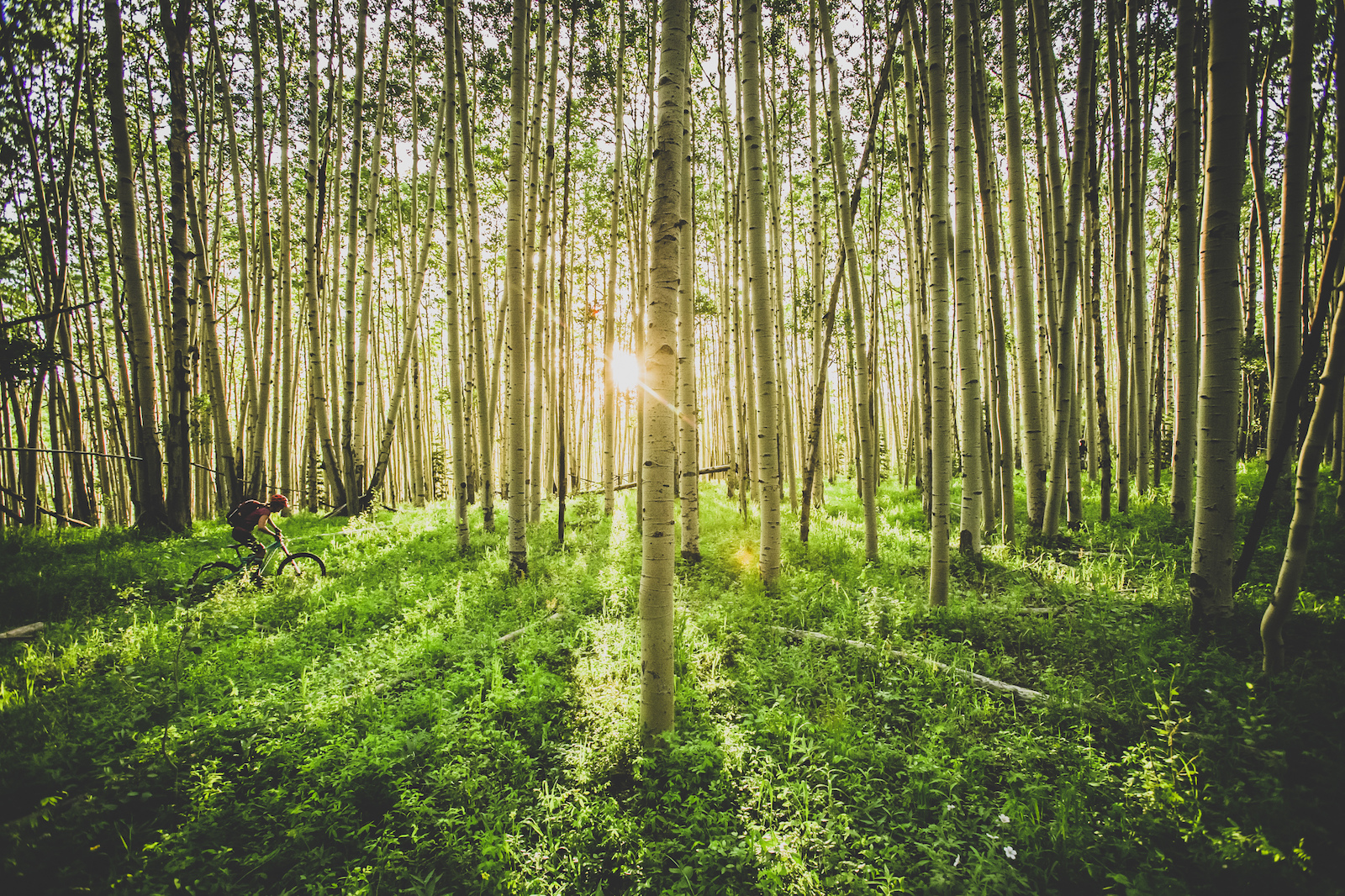
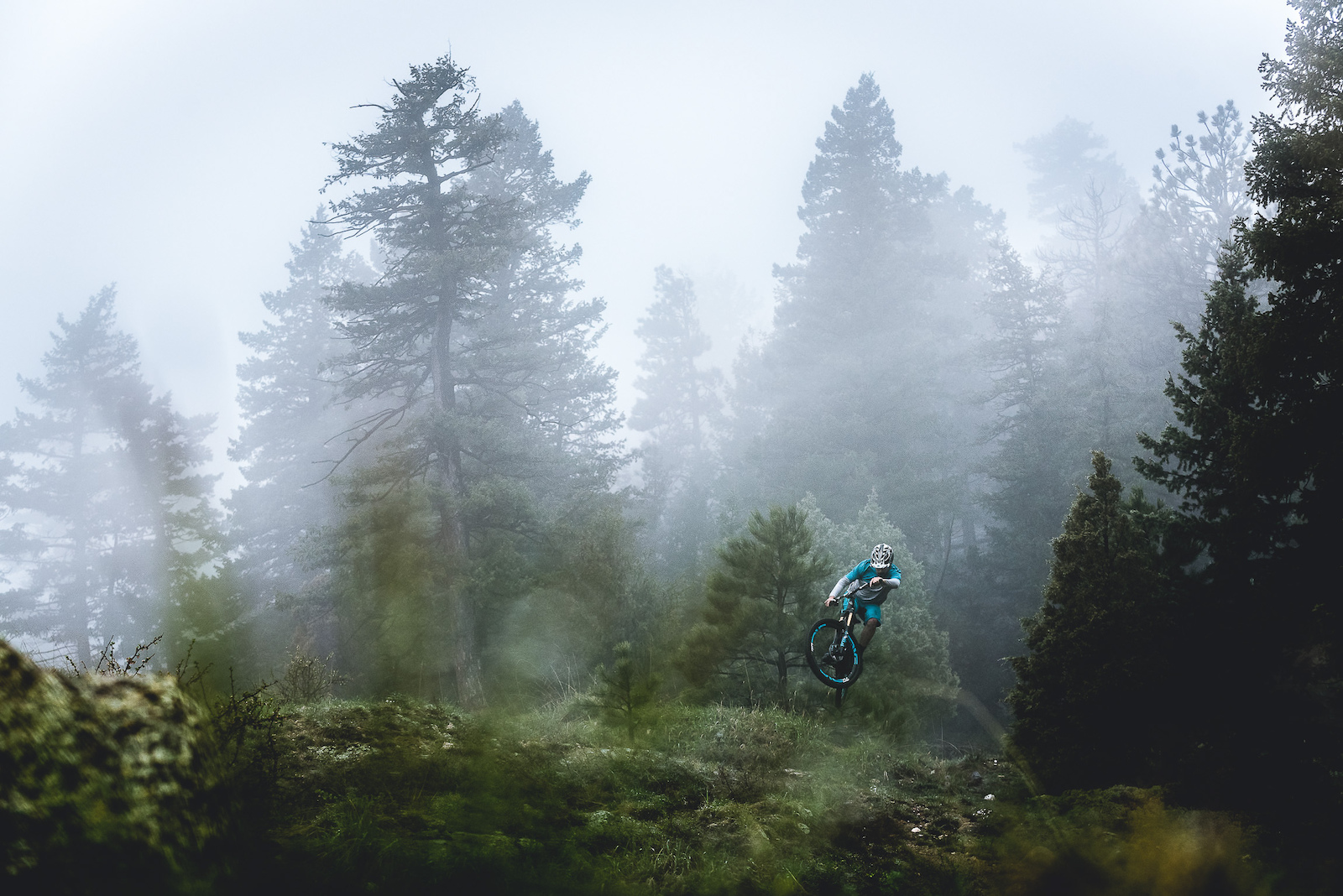
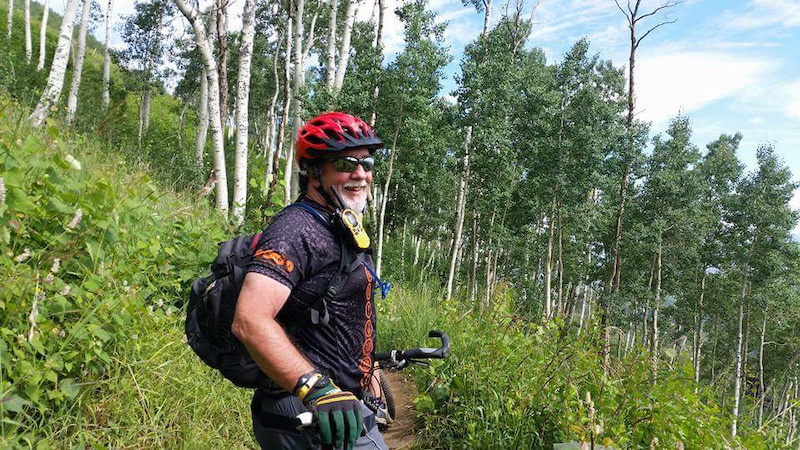
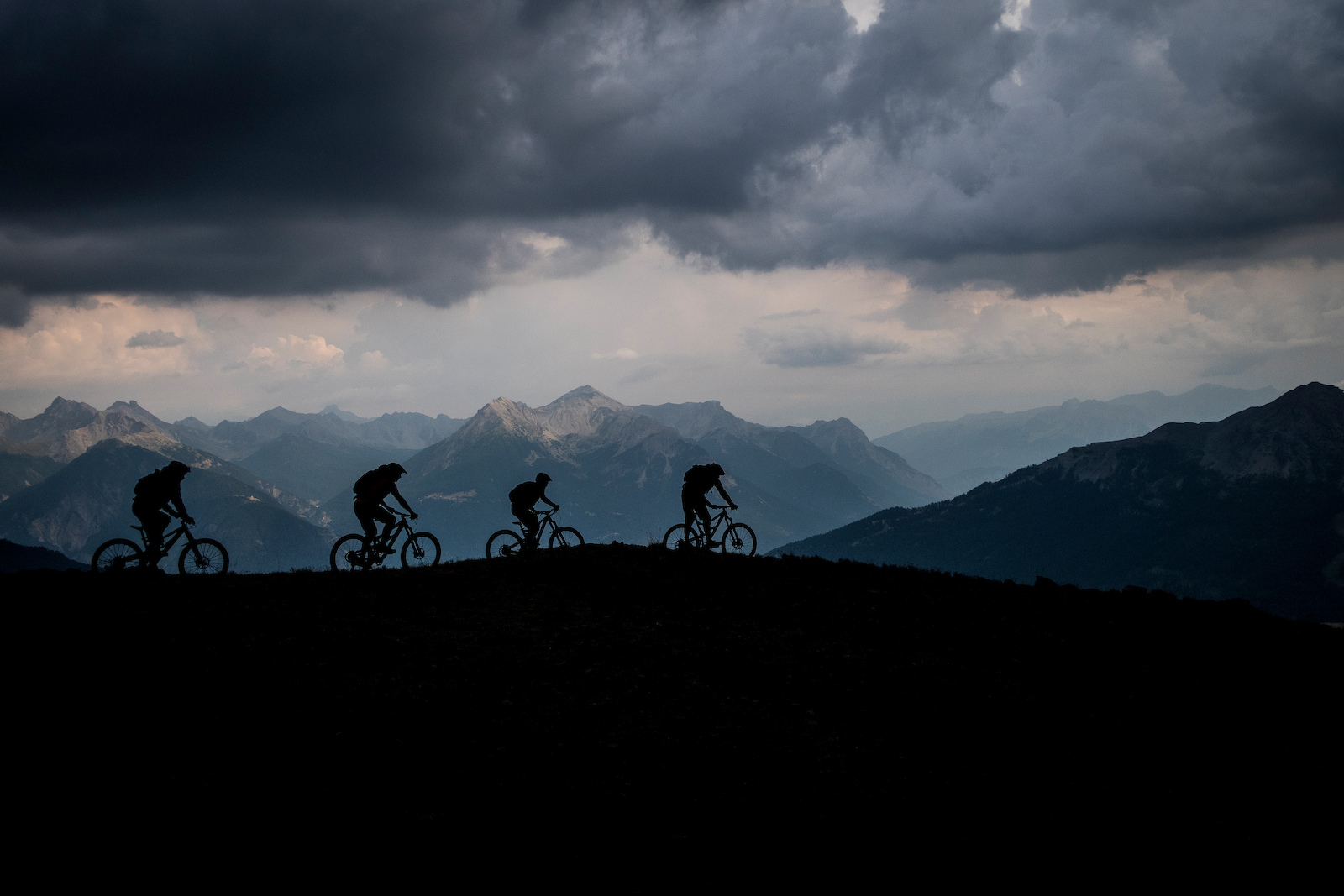
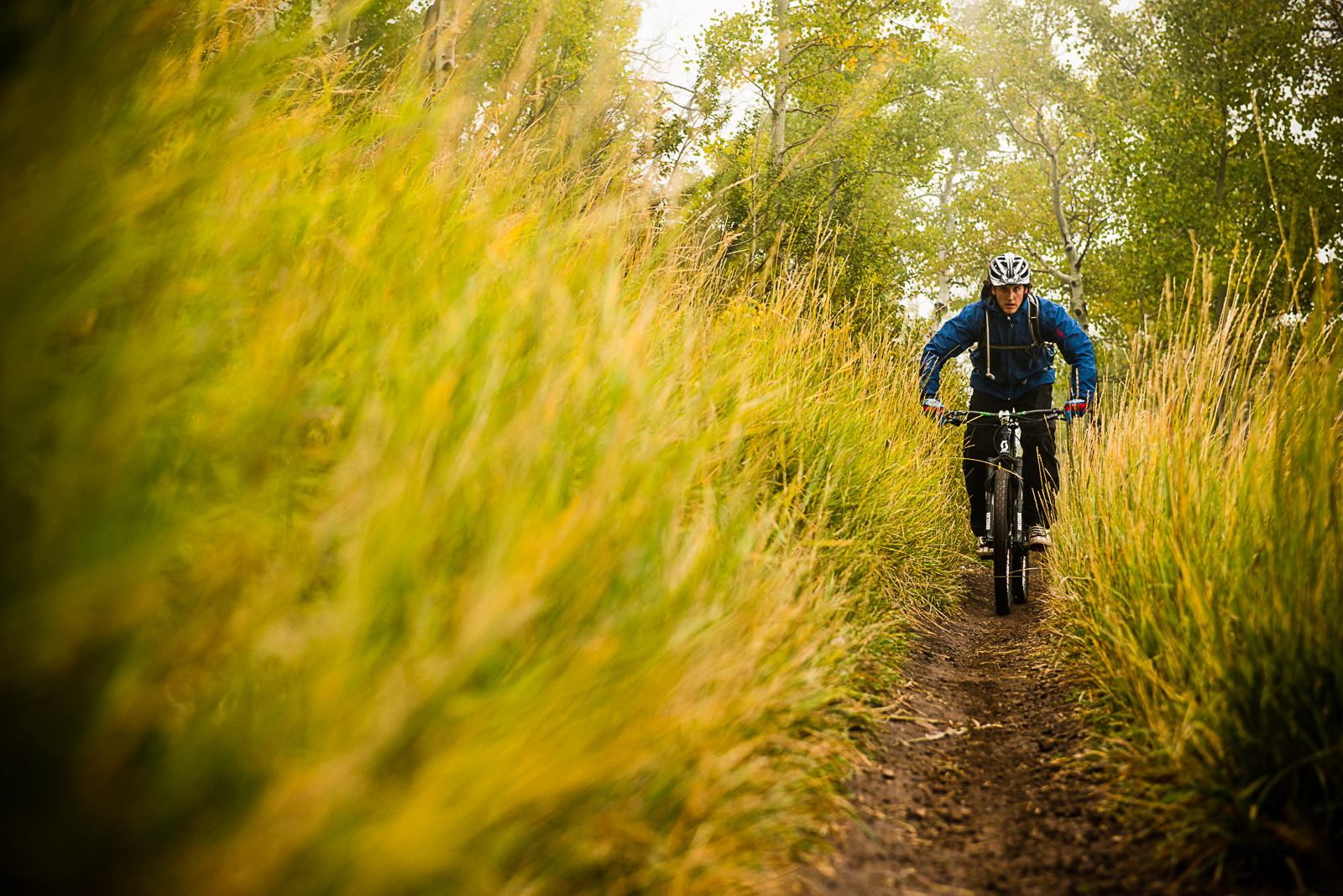
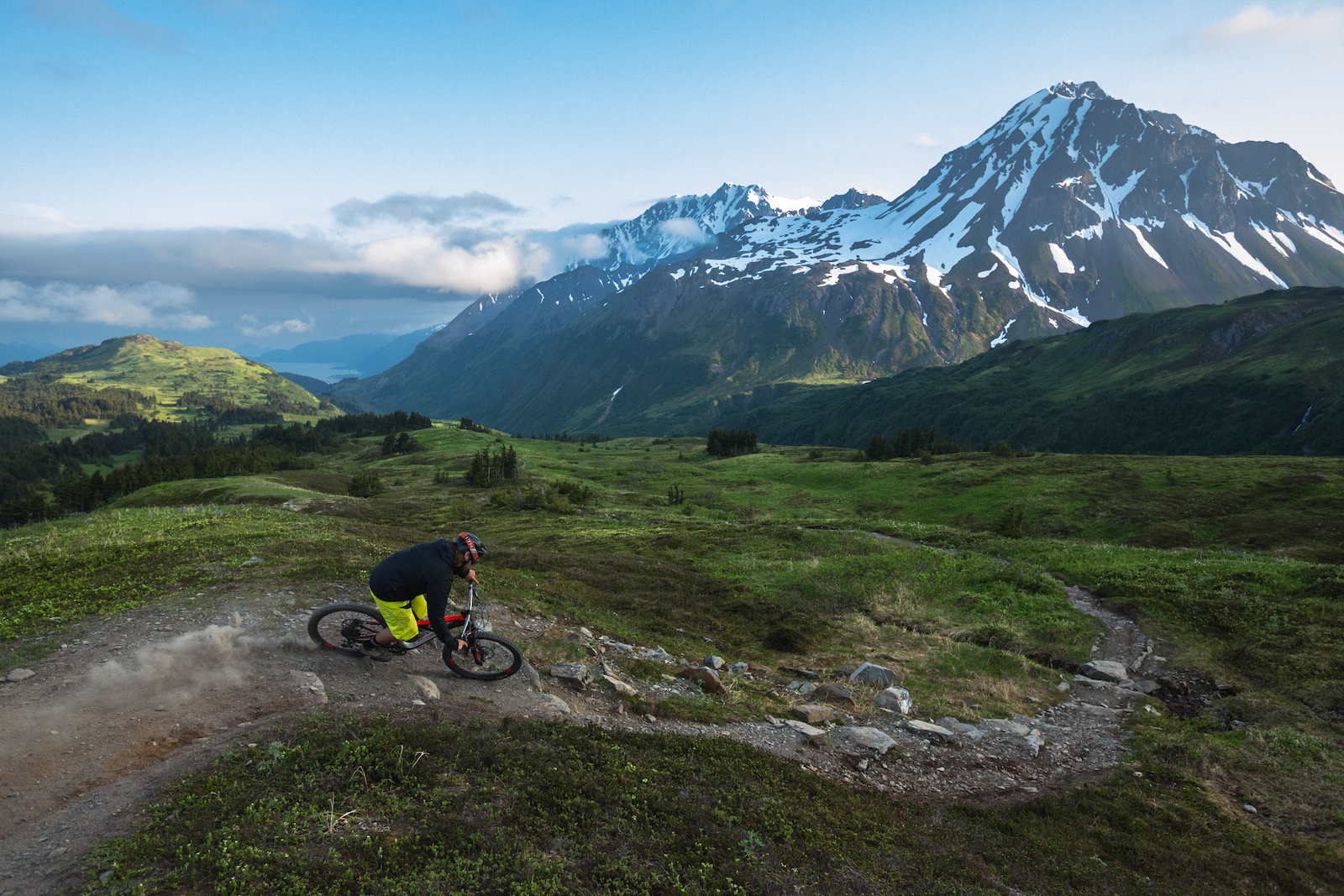
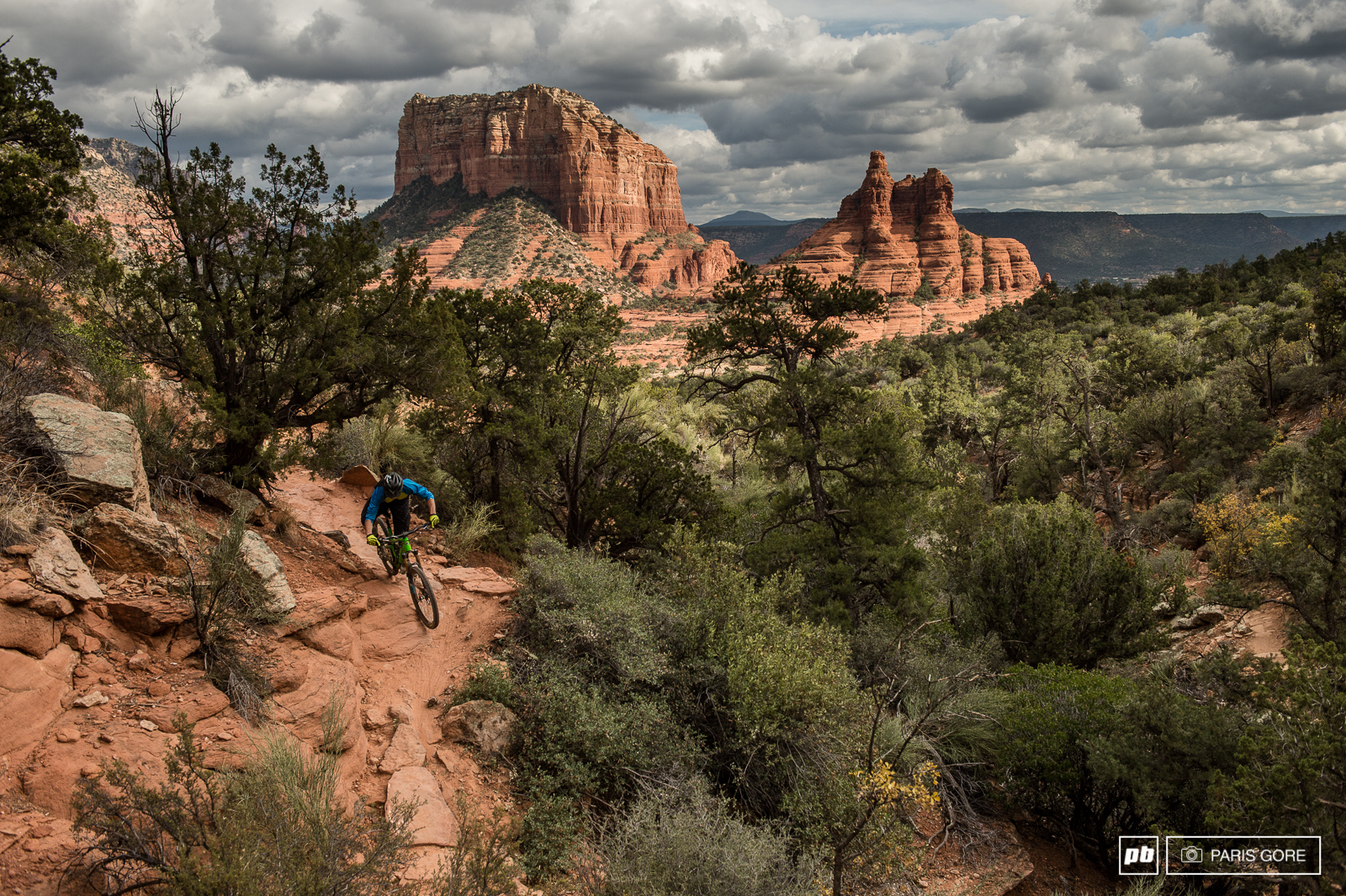
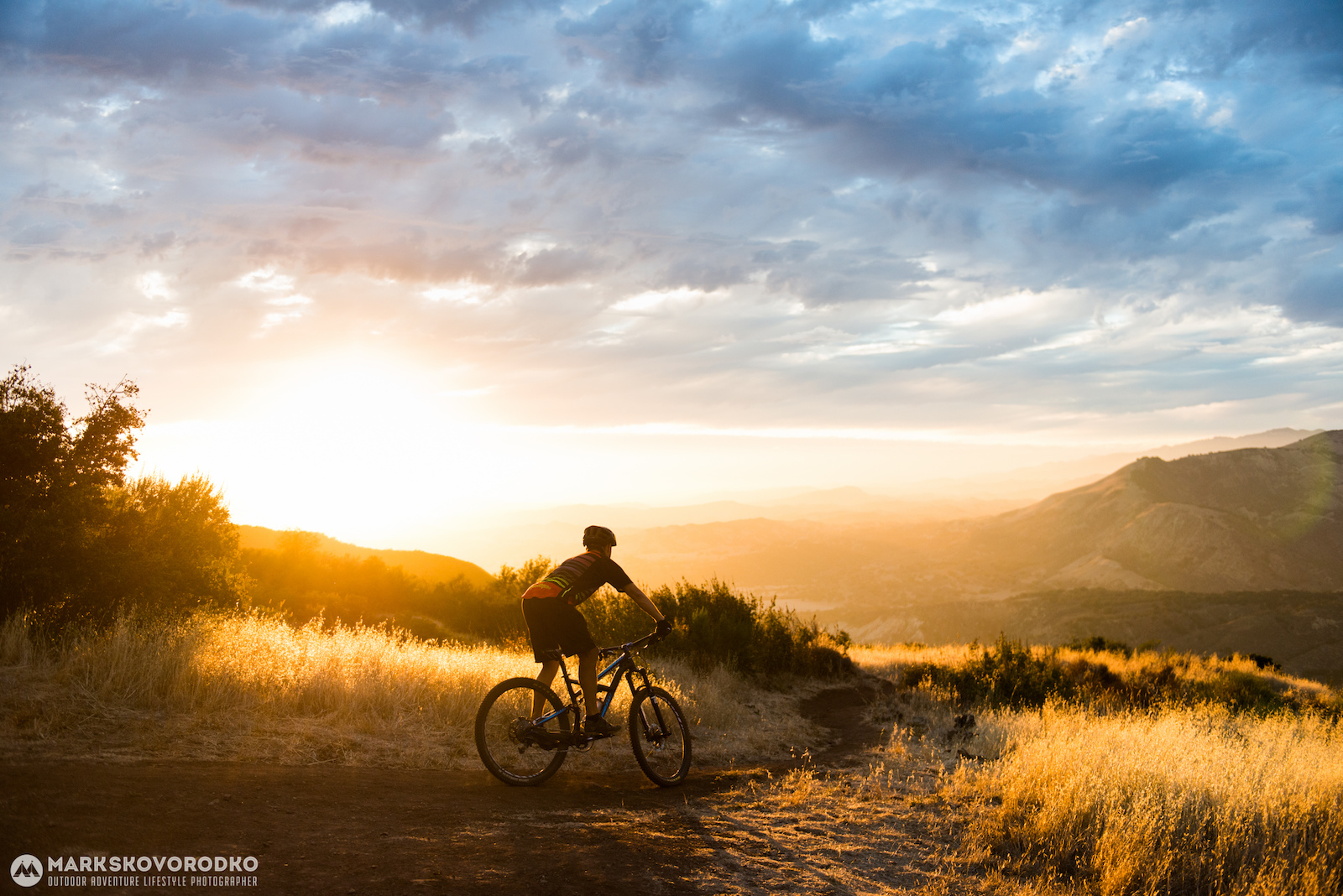
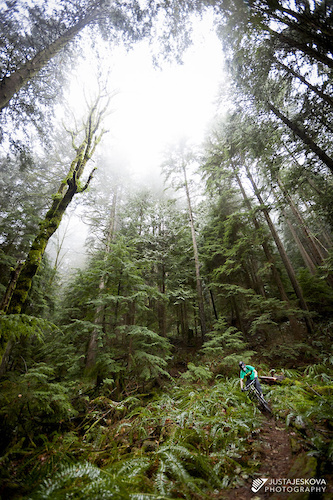
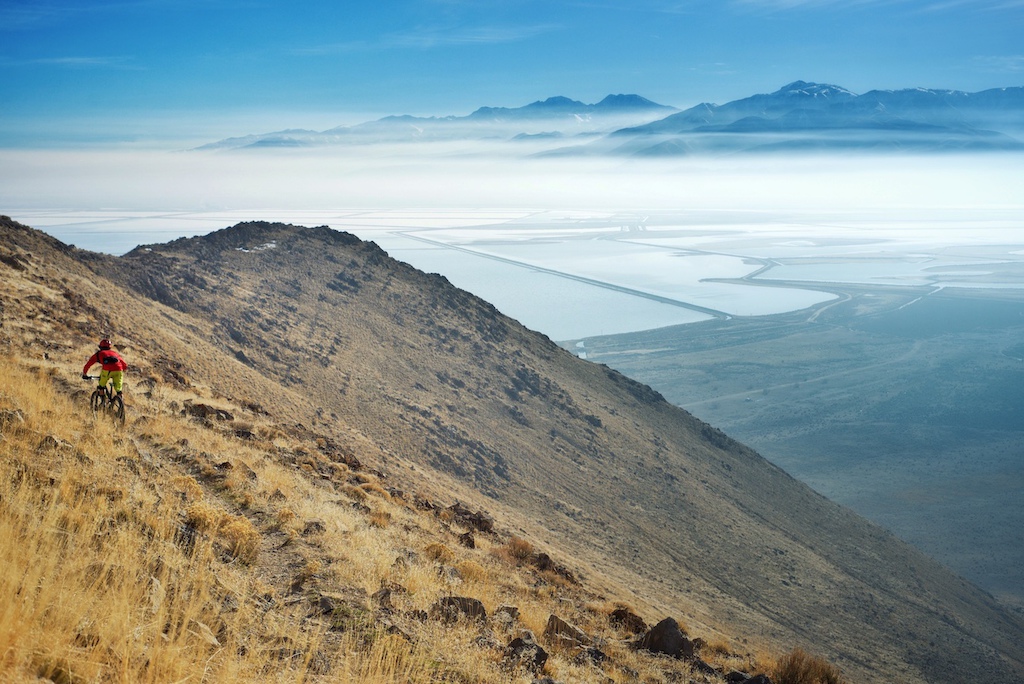
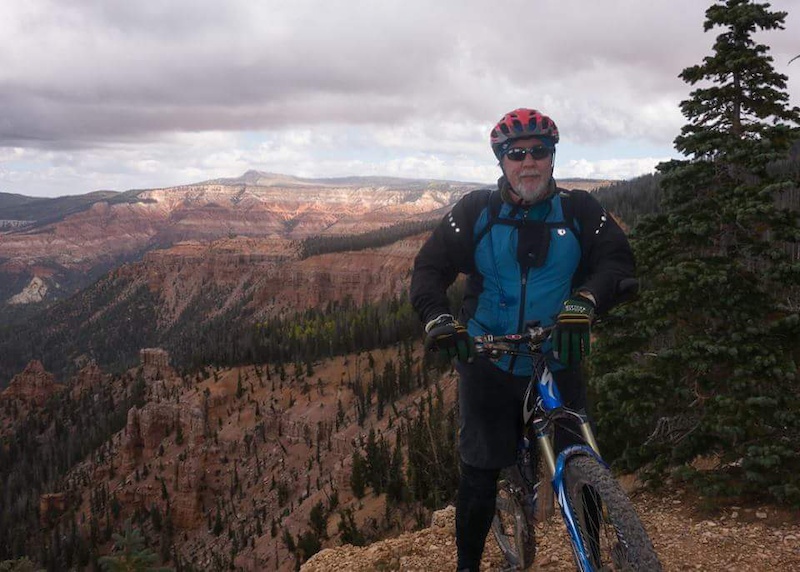

 Member since Apr 11, 2014
Member since Apr 11, 2014
They do a shitload of damage.
Horses should be banned altogether. It is 21st century, slave animal ownership for entertainment should not be tolerated.
www.americantrails.org/resources/horse/Equestrian-Access-Federal-Land-2009.html
FFS
There are exceptions for "resource extraction and grazing" (two things WAY more destructive than even horses) that existed before the Wilderness act went into effect, but bicycles are banned?
That is ridiculous...
Who owns the land? www.nrs.fs.fed.us/pubs/rmap/rmap_nrs2.pdf How much of this ought to be designated as Wilderness? 60% of all land in the USA is privately owned, much of that share by corporations, which by some bizarre twist of politics and corporate influence have the same rights as individuals.
Mountain biking is a far cry from the most disruptive activity on the land, even horses are worse. But the fight for land protection and access is much broader than the tiny area currently designated as wilderness. We should be fighting for more Wilderness, then maybe we'd be in a better position to negotiate access to some of it by bike.
This is the kind of bs that mountain bikers have to go up against. I love how the writer says mountain bikers aren't in control but he supports riding an animal with its own brain
There is no reason to own a horse and ride trails for entertainment. If you are too weak to pedal, get an e-bike.
Horse owners are too lazy to train their horses to coexist. They ain't cowboys anymore - more like housewives with latent pony fantasies.
This sorta shows the amount. There's a lot but communities are all different.
Next, horses do a hell of a lot of trail damage. Crazy trail damage. In our area in the state forest, we have 2 trail networks, one for bikes, one for horses and HIKERS can walk both trails. The bikes will never make it down a horse trail. I'm always amazed at how bad the horse trails can get. But they are rugged animals and handle it. But get this, horse groups come in and do trail maintenance all the time! They take responsibility. I desensitized my horses to bikes. I have made sure a bike rider and our horses get along, and they do! It took time and effort. Not sitting on couch or paying someone. But let me make this clear, by no means do horses, bikes or hikers have more rights than another. I've seen irresponsible actions from all 3 of those groups, but you need one before the other to stay on the trails. It's a triangle. Bikes need horses on board. Horses need hikers on board. Hikers need bikes to follow the rules. The horse groups are huge. The hiker groups are huge. The bike groups are small. Hell, I went to a meeting once about a trail network 15 minutes from my house, 2 mountain bikers came to the meeting asking to ride the horse/hiking trails in a room of 60!! The rest were an even mix of horse and hiker groups. Nope, no bikes. I even stood up and explained we can live together on the same trail, no luck.
The negativity is amazing. That thought process will get you nowhere in your argument.
BTW, about the horse shit. If you run it over, it is just a bit a bile and grass. Besides, the horse has no diseases you can catch. If it sits in the sun for a week, it becomes dried out grass. Dog shit stays in my tires for weeks, you know, probably from s slave dog owner's dog...
It is 21st century. Horses are past and we should not care about them and their owners. As they sure are not caring about us.
They have meetings about the trails. Want to try to fix the poop issue? Go to a trail meeting with a group of concerned riders, old, young, men and women, be nice, don't yell or roll your eyes, prepare a speech and have a non-involved party proof read it, be thorough and pleasant (most of these horse heads are grumpy older women and one man) smile, say thank you for your time. I will guess there will be some sort of action, was in our case, hence the $100 trail pass for equestrians. Organize a trail maintence day for multiusers, so you work together. They have to cut tree limbs, buddy up with the leader, just talk, don't blame or acuse. You could even say,"I know a guy that rides mountain bikes and he said he worked with his horses to help them deal with bikes" Offer your time! Work with them! If one grumpy woman thinks, "We should help these guys out and get rid of poop", you not only fixed YOUR problem, but you got them on your side. Want your own trail on the downhills? With them on your side, done.
Pissing and moaning about it gets nothing done about it. Pissing and moaning at a meeting or to them when out on the trail gets you on the list of riff raff and will be remembered by those grumpy women every time there is an on trail issue. If bikes become an issue, there never seems to be enough concerned, level headed bikers to try to find a solution. I'm passing on this knowledge on to you because I am on both sides of this. If you do nothing, nothing will be done.
Do you have any idea of how daft that statement is? Where do you think horse came from? Oh wait, they originated in North America, long before humans appeared.
It is the fat hags riding them and bitching about bikes who should be banned.
Jorse riding should be banned, not horses. Comprehend the difference?
Banning things is very "un-American". Compromise is a significant part of a free and open society. If one group gets to have a ban against another group, it will grow out of control exponentially as opposing groups have each other banned from their loved places over opinionated reasoning... Banning things is also the road to Despotism.
I think most people are not aware of what Despotism is, and how it has slowly creeped up and destroyed several open-societies throughout history.
That's because many people are shitheads, many of them know it and are okay with being negative.
They probably don't realize either that a negativity(anger and stress) shortens your life span.
That was stupid!
Maybe the Native Americans should start issuing back-dated citations for illegal wagon usage on their ‘Wilderness’ trails.
en.wikipedia.org/wiki/Wilderness_Act
www.law.cornell.edu/uscode/text/16/1133
To paraphrase Tom Mulclair during our last election: The Sierra Club et al. are not interested in fact-based decision making, they believe in decision-based fact making.
The cognitive dissonance by the opposition groups is outrageous. Twisting their brains around to maintain these positions is gonna block an artery and cause someone a stroke at some point...
When it comes to this particular debate, I think STC has it right by tackling the interpretation of the legislation. They shouldn't even need hard data to win something that can be logically deconstructed, but it certainly helps to strengthen the argument. When [emphasis] the ban on bikes gets overturned and the opposition wants to bring it back, then the burden of proof lies at their feet to demonstrate that bikes are damaging the trails and user experience.
@jdb06 If you haven't started uni yet and really want to pursue this, maybe major in environmental sciences or engineering and minor in GIS.
the Wilderness Act that says “In the Wilderness there shall be no mechanical transport.”
?
support mtb parks, like it or not, they are the future.
it lets our 'footprint' get deeper, not bigger.
I think you actually hate hoarding (greed) by a few people both in politics and in capitalism.
Democracy and capitalism are great, but when a few hold all the power and wealth and are hoarders, then they can manipulate the system for more hoarding. That's why we should attempt to do business with the smaller shops, and vote in our local elections, and donate to our local congressmen that we support. In the article above, wilderness access is being hoarded by the Sierra Club and Brokeback Mountain riders.
I know we're obviously responsible for 9/11, the black plague, global warming and dinosaur extinction - but i had no idea we're somehow also behind the wildreness ban on mountain bikes.
Hopefully i read your comment wrong, somehow missing out on the humor... Either way, dont get your hopes up on that- actual Israeli's dont really have any real connection with AIPAC.
Strength is in numbers, indeed - and i think that finding a way to harness those numbers from outside the U.S can go a long way (and even tip the scale our way in terms of sheer numbers)
AIPAC: American Israel Public Affairs Committee: en.wikipedia.org/wiki/American_Israel_Public_Affairs_Committee
Maybe you don't know because you don't live here in the US, but AIPAC is the most powerful lobby in the US.
Support from AIPAC would make a huge difference, and likely overnight all wilderness would be open to us.
If we could get AIPAC's support, I would donate to AIPAC.
Complete bullshit.
Half-ton horses have unrestricted acess, stomp over fresh trails, take dumps everywhere, and often times, are completly out of the equestrian's control.
The issue far more complex then building flow trails in Wilderness Areas, and I also do not believe this is what the STC is advocating for. I have to say I agree bikes do not belong in all outdoor settings, we as a group (mountain bikers) need to understand that there is a reason why we don't have trails on every patch of open land available. However with proper zoning and planning, tails that support bicycle and other forms of manual powered travel can fit into the vision of what "Wilderness" in the United States is. Backcountry trails should be just that, backcountry, this should inform the style of trail regardless of what the particular context of the outdoor space is designated. Different mountain biking experiences can exists as a apart and a part from one another, if we do not provide this variety of trail experience we risk alienating ourselves from one another.
Another link posted below threshold that gets a lot further into the comments I made above.
Innovative technology isn't necessarily to blame for trail widening, it's how that technology is used by the rider that has the real impact. Keeping singletrack single is a mantra all mountain bikers should ascribe to no matter what style riding you like to do. Plus-sized tires can still fit easily within an 18" tread or narrower. As a bike community wanting to ride in wild, back country places that are otherwise viewed as pristine to the larger outdoor rec world, we need to make sure that our riding and actions reflect a respect for these places. The public's image of mountain biking in general has a lot to do with access (obviously). Check this good read: www.singletracks.com/blog/trail-advocacy/mountain-biking-has-an-identity-crisis-and-it-affects-us-all
Image aside, respecting a designated trail and doing our best to avoid widening or damaging the rest of the area is something that should be taught by every riding club, trail association, bike park, whatever. We want to ride in wilderness, yet there are places where mountain biking is allowed in environmentally sensitive areas and the subsequent braiding now threatens mtb access (Bearclaw Poppy in St. George--luckily the local trail group stepped up to prevent the area from being closed). Like this article points out, the mountain bike demographic has changed, and is changing still. Where we once needed to pirate build trails in order to ride we no longer need to. Faster than going through the proper outlets? Sure. But a major step backward in getting more access, promoting public respect for our sport, and a potential a waste of time and energy when those trails get decommissioned.
I tend to agree that there some places that just need to be left alone. Living in eastern Nevada I'm surrounded by undeveloped open space, and the county I live in, Lincoln County, has 12 (!) wilderness areas in it alone, but I don't feel like I'm missing any riding opportunity that I couldn't get in the other 12 million acres that are available.
You buy a bike and the shop person says "hey wanna join the mountain bike associations, its free and only requires your name and email, they advocate for better access for biking." Few people will say no to that.
Horses do FAR more damage than bikers do. The low level military flights, hunting, and fishing can do far more damage in wilderness areas than a biker does. Problem there is optics. They have that in their favor. We are portrayed as nothing but hooligans looking to pump, jump, 'send', whatever, off of anything we can possibly get to. Although not true, the optics are skewed to our disadvantage.
Vote trump
From the web:
The Americans with Disabilities Act (ADA) became law in 1990. The ADA is a civil rights law that prohibits discrimination against individuals with disabilities in all areas of public life, including jobs, schools, transportation, and all public and private places that are open to the general public.
The ADA prohibits excluding wheelchairs from public places - i'm no lawyer, but I would say that a wheelchair meets the definition of mechanical by either the leverage provided in the wheel, or the fancy new transmission hub chairs and it doesn't take a huge creative leap to make that transition to bicycles.
For example: I have blown out my right knee (snowboarding) enough that hiking is intolerable (up is fine, but down.... ughh) so the only way I would get to experience some of these hikes would be to poach them with my camping bike.
Full Definition of mechanical
1
a (1) : of or relating to machinery or tools
Is a backpack not a tool? Does this tool allow hikers to go farther into these Wilderness areas? A bike is a tool as well that allows a person to journey farther into these Wilderness areas that we could unaided as well correct? A bike cannot be considered a machine by the simple definition either again according to Websters
Simple Definition of machine
: a piece of equipment with moving parts that does work when it is given power from electricity, gasoline, etc.
This definition makes an eBike a machine, but since a bicycle revolves around human power it does not fit. If you really want to get into the archaic definition of a machine again straight from Websters
2
a : a living organism or one of its functional systems
So if we go by this definition all humans and technically animals and plants are banned from Wilderness Areas as well. At best the Wilderness ban is incorrectly implemented and at worst you have a completely unenforceable law going by strict definitions. I do not support throwing out Wilderness designation by any means because as a cyclist I cannot be anything but and environmentalist. I do not think that mountain bikes belong everywhere, not because of impact, but just due to over crowding. I can't imagine what would happen if cyclists were allowed in Yosemite for example. The sheer number of hikers there would be an issue. Most other Wilderness is in fact empty by definition and there is no better way to see it than by bicycle.
When I started mountain biking in 1984, we saw the bike as a more efficient way to hike into remote wilderness areas. Our bikes were loaded down gear, and we moved slowly and respectfully through the environment. We could ride most places, including most trails in Banff national Park here in Canada. But then came the athletes, more interested in seeing how much ground they could cover in a day than in moving slowly through the mountains and enjoying the surroundings. Incidents involving surprise encounters with grizzly bears increased to the point where Parks Canada had to step in. There was too much risk of an injury to a rider from an angry bear, which would then lead to the destruction of the bear. In other words, wildlife conservation had to trump recreation. Accordingly, it is unrealistic to expect access to all wilderness areas.
What I like about the initiative of the sustainable trails coalition is that they are not asking for blanket access. Rather, they propose access to some trails. But I would like to see is for them to work with other groups and government agencies to define what "some trails" could look like.
www.sustainabletrailscoalition.org/press-releases/2016/5/18/joint-statement-by-imba-and-the-sustainable-trails-coalition-stc
The Utah Adventure Journal has published a well researched article on the bikes in Wilderness issue and two essays (one mine) on the pros and cons of allowing bikes on some trails in some Wilderness areas.
utahadvjournal.com
As for the political issue in regards to wilderness access, its pretty simple in my eyes, change the one word from "mechanical" to "mechanized" and let us have our trails back that we were aloud to use. I'm not saying we need 100% unfettered access to all wilderness, but at the very least give us back what we once had that was taken away over one word.
Common sense would do alot here as the answer is brutally obvious, however as the old adage goes... Common sense ain't so common.
In the meantime, be a good rider on the trails to others not on bikes, don't trash the place, and help maintain the trails while we still can.
It may be law, but if there are no substantial consequences, I'd still ride the trails!
. This also goes for horses, dogs, and your self as a hiker . If they are making dirt bikes carry insurance and registration they should make every one that is on a trail or road. What is the difference , you run into me on a quad,dirt bike,mtn bike,bmx bike, gt snow racer or anything and hurt me. You will be held responsible , so why not be insured. They need to start with the horse people. Make them pay 1200$ a year for insurance. Then all this would end. It all comes down to horse people THEY f*ck EVERTHING UP
I guess I just don't understand what all the fuss is about. There's plenty of non-Wilderness to build trail and ride on. Anyone living in the western USA cannot deny that there are large and beautiful landscapes that are buildable within presently legal bounds. If all of this positive energy and resources were used to develop legal trails there would be so many epic systems out there.
The sustainability and impacts to the local environment are directly related to how the trail is built, not the specific user groups. With that said..... I still don't think it's appropriate to have mountain bikes in Wilderness, especially with the current conditions of most of the trails in them. We need to focus our energy and resources on smart and sustainable trail building without the self-inflicted hurdle.
If it's about freedom and principal, that's a philosophical discussion about literalism and intent, and I won't go there now.
I will say, be skeptical of new designations. Participate in the public scoping process because regular Americans can make a difference in the result of these types of decisions. Find out about the rationale and motivations for such designations. Once the issues are disclosed maybe there are other avenues to achieve the same outcome. If it's all about keeping oil and gas out of an area, then explore other designations that will achieve that and still allow mountain bikes, such as a National Monument or wilderness study area (example: lower porcupine rim). If the trail systems are sediment loading salmon spawning beds, then focus on trail design and grazing management. Certain designations are the easy way out for the land management agencies. Make them address the real issues and manage our public lands.
Be involved in the language of the land use policy for an area so that mountain biking is allowed. These decisions aren't made overnight. The world is run by people who participate.
Yes, government agencies are slow, clunky, and sometimes out of touch. But it's also true that they actually do pay attention to public comments, especially when the same comment comes from a number of individuals or groups, and can be persuaded to make a change to a management plan while it's still being developed--they hold public scoping and comment periods for a reason.
1) Point Reyes is not a wilderness area. Bikes are allowed on some trails.
2) There is no camping in Muir Woods. There is camping at Pantoll which is near Muir Woods.
Allowing the majority control without compromise will be the slow death of Democracy.
Note, I am not asking for your opinion on this, I've already read it, I want the facts that were used by the Reagan Administration to interpret the Wilderness Act as banning mountain bike use.
And secondly, can you show me the article of the Constitution of the United States that gives the Executive Branch the power to Interpret the laws and acts of Congress?
They shouldn't ban horses because they are mechanical; they should be banned for the destruction they cause.
Tents were originally made of bamboo and canvas, but we still allow gore-tex and aluminum....
What if I make a bike out of wood and leather?
I don't know why I am wasting my time pointing out the hypocrisy because you obviously have your mind made up.
So...super dumb ass argument.
Right. The "nothing mechanical" argument conveniently (inconvenient for us...) eliminates nothing that doesn't have a motor, except bicycles.
If the line was drawn at a motor it would include us as a user group. We would bring with us our passion for trail building/maintenance and our votes, but nope, we aren't welcome in "their" wilderness.
And to that end, the mountain bikers supporting "bikes in the wilderness" have yet to produce one quote from the writers of the Wilderness Act that confirms that bikes should be in the Wilderness.
And thrasher, Moose and Bison made the same amount of damage as horses and they are allowed in Wilderness Areas. Also, horses live freely in some Wilderness Areas. And Steve Decker, horses were on the North American Continent over 11000 years ago. They died out and were reintroduced by the Spanish in the 1600's.
The fact that the ban on mechanical devices in the Wilderness Act is only used to ban bikes and not all mechanical devices shows how shortsighted, narrow minded, and discriminatory the law is. Hikers and equestrians don't want to share use of our public land, and they will use badly written articles of the laws (that they lobbied for) to enforce thier selfishness and hatred. It is wrong and should be amended with the same vigour that other shortsighted, narrow minded, selfish laws that are used to attack those who are different have been changed or aboloshed.
That is plain bullsh@t.
Horses decimate trails and crap all over everything. Wild animals roam the woods...
Admit it, you just don't want bikes on trails.
you must extract some resource from the area? does that make it legal?
The Blue Ribbion Coalition get dollars from me to help fight for access so I ride my sled and my MTB for that matter when visit the western U.S.
Membership should not free, we have to support these all that will fight for conservation not preservation?
These people Are fighting for us, watching land been taken away because we are fractured and fighting between ourselves and about who's mode of transport is better. I contend we are the true conservationist are doing the right thing, you don't have to be told how to carry or selves.
This is the blue Ribbion coalition
www.sharetrails.org
SNOWMOBILE ALLIANCE OF WESTERN STATES
CUTTING THROUGH DECEPTIONS & MISPERCEPTIONS TO PROTECT YOUR RIGHT TO RIDE!
www.snowmobile-alliance.org
You know theses guys
www.imba.com
Your local chapter of what ever bike club you have and maybe the club who trails you also enjoy next door, they need you!
Ps. I really want access for all of us in which ever thing you chose as your, I'm not pushing for motorized access over any other this is what I'm more familiar with.
Please if you have a organization put if here they need all of us that is the pollical will we all need.
Blah blah blah.. Preachy preachy. Sorry. And Thanks.
They're tremendously funded, and have a SHIT LOAD of corrupt liberal politicians in their pocket(s). For example, Diane Feinstein-who we can thank all the liberal f*cktards in NO-cal for repeatedly re-electing- PURPOSELY violated FEDERAL FIREARMS LAWS by straw-purchasing a long-gun for her nephew or cousin or whatever, but she has no problem trying to take away our CONSTITUTIONAL right to own guns ourselves.
Anyway, with a well-funded payola chest for these slimy dirtbags, the Sierra Club pretty much can write whatever laws they want, and that equates to banning anything but hiking and horses on PUBLIC LAND, ie land WE OWN!
That doesn't even take into account the amount of damage f*cking horses do to these trails, vs. mountain bikes, which equate to a lousy extra 30lbs over basic human weight, or roughly the equivalent of what the average hiker weighs with his full pack.
It seems like it should be easy, whereas all we need is for a 'rational' group of politicians to listen to reason.
But obviously it's far from that, as laws are written, and our Congressmen and Senators only lobby for those who write the checks, ie the Sierra Club.
Cheers!
"Very little research has been in done in an attempt to answer this question, but the empirical studies that have been conducted do not support the notion that bikes cause more natural-resource impact. What studies do demonstrate is that all forms of outdoor recreation - including bicycling, hiking, running, horseback riding, fishing, hunting, bird watching, and off-highway-vehicle travel - cause impacts to the environment."
www.imba.com/resources/research/trail-science/natural-resource-impacts-mountain-biking#1
Image aside, respecting a designated trail and doing our best to avoid widening or damaging the rest of the area is something that should be taught by every riding club, trail association, bike park, whatever. We want to ride in wilderness, yet there are places where mountain biking is allowed in environmentally sensitive areas and the subsequent braiding now threatens mtb access (Bearclaw Poppy in St. George--luckily the local trail group stepped up to prevent the area from being closed). Like this article points out, the mountain bike demographic has changed, and is changing still. Where we once needed to pirate build trails in order to ride we no longer need to. Faster than going through the proper outlets? Sure. But a major step backward in getting more access, promoting public respect for our sport, and a potential a waste of time and energy when those trails get decommissioned.
I tend to agree that there some places that just need to be left alone. Living in eastern Nevada I'm surrounded by undeveloped open space, and the county I live in, Lincoln County, has 12 (!) wilderness areas in it alone. I don't feel like I'm missing any riding opportunity that I couldn't get in the other 12 million acres that are available.